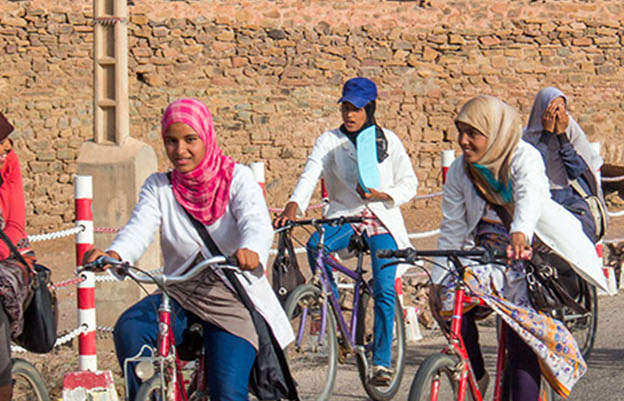Minor in Morocco and... Moroccan food (mekla meghribiya)
“What are you going to do in Morocco?”, some friends asked me before I went. “Studying and doing fieldwork research. Hopefully learn Moroccan Arabic”, I replied at the time. How wrong could I be? Yes, I am studying and preparing my fieldwork here. But I was utterly mistaken in what would be my main activity while living with a Moroccan host family: Eating mekla meghribiya!
Food, food, food
It has been three weeks and I gained an incredible amount of weight since I first arrived at my host family in Rabat. It did not take a while to find out about our host mother’s amazing cooking abilities. Every time the family called Amaya, my fellow student and roommate and me for dinner, the table would be filled with plates of salads, grilled vegetables and a main course with meat.
Like most families in Morocco, our host mother spends her Friday mornings in the kitchen to prepare the national treasure, also known as couscous. It comes as no surprise, but my first word in Darija probably was kouli (eat!). Our host mother made sure that we eat every time like we have never done before, especially since I am a vegetarian. She thought it was both funny and complete nonsense and she still tries to convert me to the carnivorous. However, she seemed to have accepted my weird diet by dishing up my plate with salads and vegetables until I cannot eat anymore.
Eating, a social event
During these weeks, we learned quite a lot about the rites of eating. When you start eating, you say bismillah, in the name of God. Everyone has a small plate where they can dish up as much as they want. It is not common to use cutlery while eating; instead you should use a piece of bread to dip in the dish you want. The family members share a stoneware mug with water amongst each other, while we get our own glass. But we have created a rite of our own during dinner. We give compliments about our host mother’s cooking talent by saying ldid (delicious) after every new dish we try. She answers by giving us a grand tour around the table and naming every vegetable and ingredient in Darija. After dinner, we say lhamdullilah and everyone goes their separate ways.
This relates to another observation. I noticed that eating is a social event in my host family. The family members have their own lives and their own spaces within the house. Whenever our host mother has cooked or baked something, everyone comes together to talk to each other about their day or to watch television together. For example, our host mother bought cactus fruits. When Amaya told the family that this is her favorite piece of fruit, our host father suddenly started singing a French song about cactus, to the amusement of our host mother and ourselves. Social relations seem to be forged over good food.
“What are you doing now?”, a friend asked me a couple of days ago. “To tell you the truth, mostly eating”, I replied, more realistically. Although, for all of those worried that I am not studying.. I am rather studying through the lens of mekla meghribiya. Eating is crucial in learning Darija, shaping social relations and understanding Moroccan culture.


